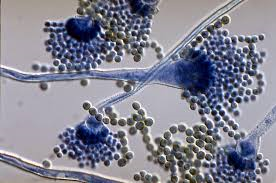Effect of temperature and ph on activity of purified cellulase obtained from Aspergillus Flavus
Keywords:
Aspergillus flavus;Characterization Purified cellulose;Temperature;Thermal stability;PH activity and relative activityAbstract
In view of the fact that temperature and pH play key role inthe activity of fungal cellulases, this experiment was designed to assess theeffect of temperature, and pH on activity of the purified enzyme fromAspergillus flavus derived from rotten wood. The characterizationof the purified cellulase enzyme of Aspergillus flavus was carried out usingcarboxymethyl cellulose, filter paper and cotton wool assays. The maximum andoptimum temperatures were 900C and 700C respectively. The pH optima werebetween 5 and 8. The enzyme retained above 50% of its original activity at 1000C for 1h and up to 80% at 80 0C for 1h. It was stable over a pH range of 5-8,and retained up to 40% of its original activity at pH 9. The study carried outshowed that the purified Aspergillus flavus cellulases demonstrated usefulproperties among which include; high optimum temperature, increased thermalstability at both acidic and alkaline pH. They also offer additional advantageas they are more rigid than meso enzymes and moreover, are more resistant tothermal and chemical denaturation. Hence are remarkable tools for developingcommercial biotechnologies and for studying protein stability.

Published
How to Cite
Issue
Section
Copyright (c) 2014 I.F. Okonkwo

This work is licensed under a Creative Commons Attribution-NonCommercial-NoDerivatives 4.0 International License.



